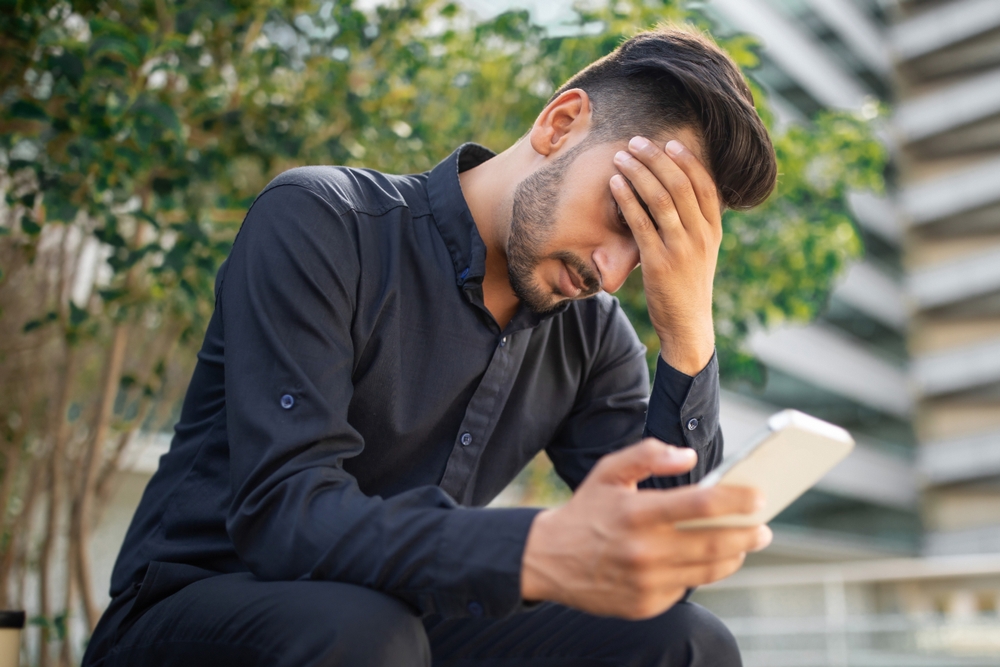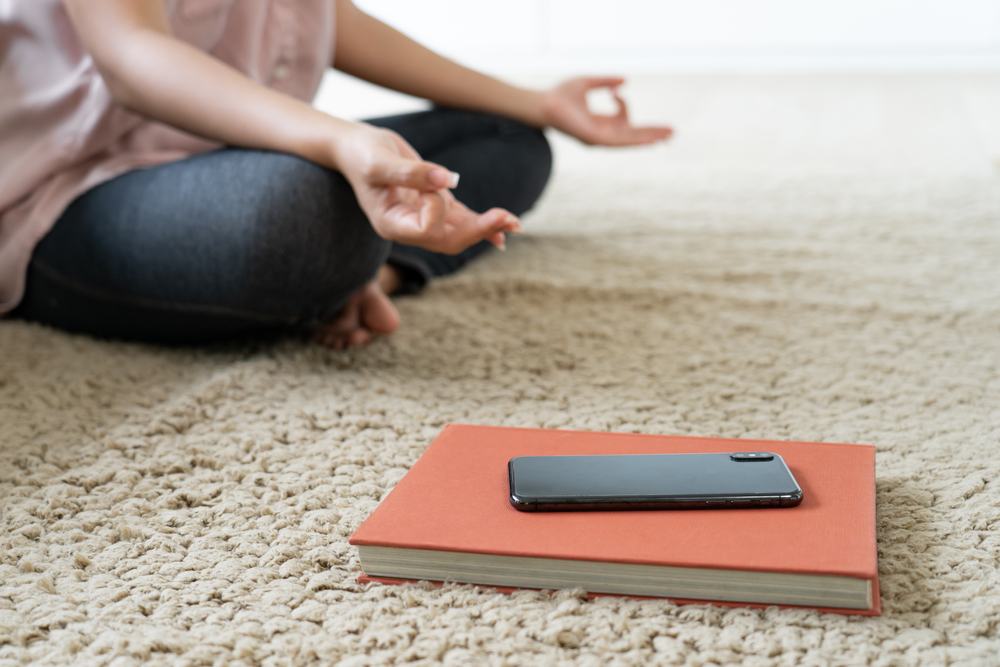Doomscrolling or doomsurfing is the act of continuously consuming negative news online. Say you’re scrolling through social media, and come across an upsetting post or comment. You look for content that validates your reaction to the news, and get caught up in a web of negativity. Or you continue to skim related stories that are equally or increasingly disturbing. You keep checking the story for updates, and may ignore or dismiss information that doesn’t confirm your opinions. In any event, you are in a spiral of negativity, and when you finally put down your phone, a considerable amount of time has passed and you feel anxious, exhausted, and riled up. Research shows that this isn’t a passing feeling. Rather, this habit can negatively impact emotional well-being, relationships, and overall quality of life.
Increased Anxiety, Stress, and Depression

Studies during COVID-19 pandemic found that people who excessively doomscrolled reported higher levels of depression and anxiety. Instead of feeling informed and prepared for the upcoming difficulties, they felt more helpless and distraught. At the moment, doomscrolling may feel like it’s giving a sense of control, but in reality, it does the opposite. It can become a maladaptive coping mechanism. In trying to feel in control, it feeds the ruminations, fear, and helplessness, explains Jamie Krenn Ph.D. on Psychology Today.
Read More: TikToker’s Heavily Edited Photos Are An Example of How Fake Social Media Really Is
“Mean World Syndrome”

Although many people doomscroll while attempting to learn about the world, it can actually warp their sense of reality. Their bodies feel stuck on adrenaline as if they are in mortal danger, even when they are in a safe environment. “Since the 1970s, we know of the ‘mean world syndrome’ — the belief that the world is a more dangerous place to live in than it actually is — as a result of long-term exposure to violence-related content on television,” says Mesfin Bekalu, a research scientist at Harvard’s T. H. Chan School of Public Health, to Wired. “So, doomscrolling can lead to the same long-term effects on mental health unless we mount interventions that address users’ behaviors and guide the design of social media platforms in ways that improve mental health and well-being.”
Sleep Disruption

Unfortunately, bedtime is many people’s prime doomscrolling time. It’s easier to get caught up in a bad news spiral without daytime distractions. And it’s easier to keep scrolling than to put down the phone and try to sleep with your head spinning from everything you read. This leads to physical exhaustion as well as mental exhaustion the following day, which can worsen anxiety and emotional health.
Strained Relationships

Feelings of depression and anxiety can lead to emotional withdrawal from loved ones. The stream of bad news can become consuming and drain energy that usually goes to spending quality time with others. It also drains time, lots of it, that could be used for meaningful social interaction. And when the doomscrolling ends, the bitter feelings remain, which can lead to loved ones suffering from the brunt of misplaced, pent-up frustration.
Negativity Bias

Why do people doomscroll while knowing it’s bad for them? One reason is negativity bias. The human brain is wired to pay more attention to bad things than good, which is a protective instinct related to fight or flight. This stress response is helpful in life-or-death situations, but it can be harmful if it’s chronic. Take, for example, a person doomscrolling and being constantly exposed to crises as their brain ignores more uplifting content.
Addictive Algorithms

Doomscrolling isn’t just a bad habit; it’s an intrinsic part of social media. Personalized recommendations are part of every platform. Algorithmns present content the user may like based on their previous viewings and interactions, all to keep the user scrolling for as long as possible. Therefore, many algorithms push content that arouses negative emotions since they tend to get more views, interactions, and comments. But that leaves the users feeling bombarded by negativity, leading to poor mental health, says a 2023 study.
How to Stay Informed with Doomscrolling

“We need to stay informed, but not at the expense of our mental health,” says Dr. Aditi Nerurkar, a lecturer in the Division of Global Health and Social Medicine at Harvard Medical School, to Harvard Health. “And cutting back is not about abstinence; it’s about decreasing reliance.” So set limits on researching current events. Don’t just tell yourself you’re checking social media for only a few minutes. Set a timer beforehand to track how much time is passing. And stop when you are just ruminating, and no longer learning.
More Tips on Avoiding Doomscrolling

- Cultivate a better feed. Unfollow/block accounts and hashtags that cause stress. Instead, look for content that’s uplifting, educational, or entertaining in a positive way.
- Practice mindfulness. When you notice you’re falling down a rabbit hole (or deep within one), take a deep breath and put your phone down for ten seconds. Ask yourself how the content is making you feel, better or worse? Then ask yourself if you’re in control or if the compulsion to scroll is controlling you. Take a moment to focus on the present, and regain your bearings outside what you’re reading, advises PsychPlus.
- Do something else. Doomscrolling is something people tend to do when they’re bored, like while waiting for an appointment, during transportation, or getting ready for bed. Choose activities to fill these gaps, such as reading a book, listening to podcasts, journaling, exercising, stretching, or other hobbies.
- Set a curfew. One of the worst effects of doomscrolling is on sleep. It keeps people up at night, staring at their phones, and agitates them so it’s harder to rest afterward. So set a curfew such as no social media or news 30–60 minutes before bed. Create a new wind-down routine that promotes relaxation, like listening to calming music, reading books, meditating, etc. And don’t leave your phone on your nightstand.
- Act instead of scroll. When you come across a particularly distressing news story, look for tangible ways to help instead of spiraling and investigating every detail involved. Donate, volunteer, contact representatives, and speak to trusted friends about your concerns.
Read More: 15+ Things You Should Never Post On Social Media

